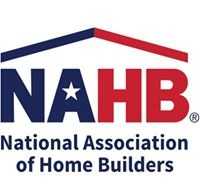New York-based lender permanently banned for gross violations of FHA underwriting standards
WASHINGTON, DC – December 14, 2010 – (RealEstateRama) — The Federal Housing Administration’s Mortgagee Review Board (MRB) today announced that it is permanently withdrawing FHA approval of Cambridge Home Capital, LLC (CHC), a Great Neck, New York-based lender. In addition, the MRB will seek a monetary penalty of $182,000.
Meanwhile, the U.S. Department of Housing and Urban Development, along with HUD’s Office of Inspector General, worked closely with the U.S. Attorney’s Office in the Southern District of New York in related civil fraud charges announced today against CHC.
The MRB took these actions based upon Cambridge Home Capital’s (CHC) numerous and egregious violations of FHA requirements, including: failure to maintain and implement a required Quality Control Plan; failure to document the stability and/or source of borrowers’ income, approving loans with grossly excessive debt-to-income ratios without compensating factors to justify approval; and using conflicting information in originating and obtaining FHA mortgage insurance.
“The serious and egregious violations we discovered require strong action in order to protect the best interests of FHA and the public,” said FHA Commissioner David H. Stevens.?”FHA’s underwriting standards are there for a reason – to ensure sustainable homeownership for borrowers and to protect the financial health of the insurance fund so we can continue to meet our public mission.”
During the course of FHA’s investigation, the Department found:
- CHC failed to implement and maintain a Quality Control (QC) Plan for the origination and/or servicing of FHA-insured mortgages. An acceptable QC Plan requires the mortgagee’s office to be sufficiently staffed with trained personnel. In addition, the mortgagee is prohibited from setting a minimum loan amount.
- CHC failed to adequately document the stability and/or source of income used to qualify borrowers. The purpose of underwriting is to determine the borrower’s ability and willingness to repay the mortgage debt. To do this, the mortgagee must examine and verify income and employment. In nine sampled loans, CHC failed to do this. Investigators found examples where borrowers’ income was significantly overstated and sources of income were not verified.
- CHC approved loans with ratios that exceeded FHA guidelines without the required “significant compensating factors.” Mortgage and overall debt-to-income ratios are used to determine whether a borrower can reasonably be expected to meet mortgage expenses. Whenever these ratios exceed FHA standards, the mortgagee is required to specify its rationale for approving the mortgage. In 13 sampled loans, CHC approved the mortgages without adequate significant compensating factors and/or documentation.
- CHC used conflicting information in originating and obtaining FHA mortgage insurance. A mortgagee is required to verify and document all information that supports its decision to approve a loan. In four sample loans, the company used documentation that contained discrepancies involving borrowers’ employment, credit scores, and property addresses.
While?CHC may appeal FHA’s withdrawal by submitting a written request for a hearing before an Administrative Law Judge within 30 days, the filing of an appeal does not delay the actions announced today.? A complaint seeking civil money penalties will be served on the company in due course and the Company will have the opportunity to contest the imposition of the penalties before an Administrative Law Judge.
###
HUD’s mission is to create strong, sustainable, inclusive communities and quality affordable homes for all. HUD is working to strengthen the housing market to bolster the economy and protect consumers; meet the need for quality affordable rental homes: utilize housing as a platform for improving quality of life; build inclusive and sustainable communities free from discrimination; and transform the way HUD does business. More information about HUD and its programs is available on the Internet at www.hud.gov and espanol.hud.gov.
Contact:
Brian Sullivan
(202) 708-0685











